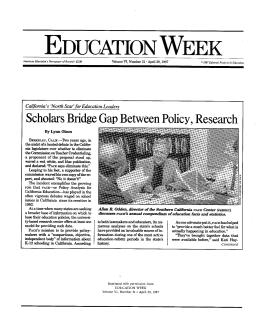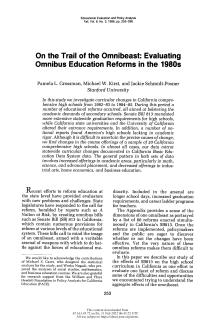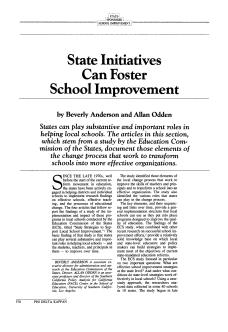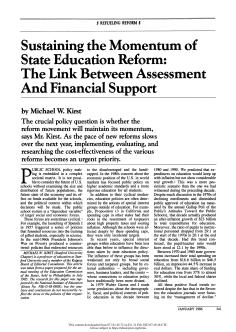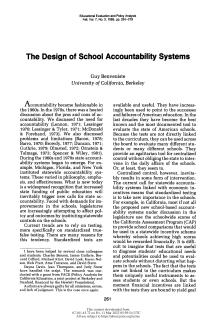Published
Summary
PACE, a university-based research center, provides "nonpartisan, objective, independent" information on K-12 schooling in CA. Its analyses have been invaluable to lawmakers and educators during the state's active education-reform period. PACE has played a growing role in debates on school issues, exemplified by a heated debate in the CA legislature over the Commission on Teacher Credentialing. PACE offers a model for providing data for education policies when many states are seeking broader information bases. It has helped provide a better understanding of what is happening in education.
Evaluating Omnibus Education Reforms in the 1980s
Published
Summary
The study examines curricular changes in California's high schools from 1982 to 1985, a period of educational reforms aimed at increasing academic rigor. The state mandated more extensive graduation requirements while universities adjusted their entrance requirements. A sample of 20 comprehensive high schools shows increased academic offerings in math, science, and advanced placement, and decreased offerings in industrial arts, home economics, and business education, reflect statewide trends.
Published
Summary
States can help local schools improve by implementing effective school improvement strategies. A study by the Education Commission of the States (ECS) identified key elements that can transform schools into more effective organizations, and various roles that states can play in the change process. The study analyzed data collected in 40 schools in 10 states, providing a solid knowledge base for implementing state-mandated education reforms. Effective strategies and conditions for success were studied using a case-study approach. The study began in late 1983 and was completed in early 1985.
The Link Between Assessment and Financial Support
Published
Summary
Public school policy making is embedded in a complex societal matrix. It is not possible to consider the future of U.S. schools without examining the size and distribution of future populations; the future state of the economy and its effect on funds available for the schools; and the political context within which decisions will be made. The public school system is a "dependent variable" of larger social and economic forces.
Published
Summary
Increased state funding of public education has led to a call for statewide accountability systems. Current trends rely on standardized true-false testing, which can distort what happens in schools when financial incentives are linked with the tests. Teachers are important, and accountability should provide positive encouragement without excessive use of testing. A set of principles and an outline for a statewide accountability system that relies on both top-down and bottom-up accountability is presented.
